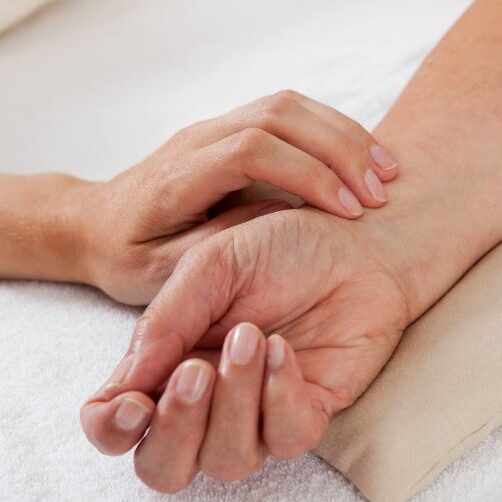
What is Chinese Pulse Diagnosis?
In Chinese medicine, pulse diagnosis is a crucial component of the overall diagnostic process, providing valuable information about the state of a person's health. Acupuncturists check the pulse at the radial artery, located next to the wrist, and assess various qualities to gain insights into the condition of different organ systems. Here are some key aspects acupuncturists may consider when checking your pulse:
Depth of the Pulse:
- Superficial: Indicates conditions related to the exterior of the body, such as the skin and muscles.
- Deep: Reflects conditions within the body, particularly related to the internal organs.
Rate of the Pulse:
- Fast: May suggest conditions of excess, heat, or Yang.
- Slow: May indicate conditions of deficiency, cold, or Yin.
Width of the Pulse:
- Thin: Suggests conditions of deficiency or cold.
- Wide or Full: May indicate conditions of excess or heat.
Quality of the Pulse:
- Floating: Indicates conditions related to the exterior and excess.
- Sinking: Reflects conditions related to the interior and deficiency.
Strength of the Pulse:
- Strong: Reflects conditions of excess, heat, or Yang.
- Weak: Indicates conditions of deficiency, cold, or Yin.
Rhythm of the Pulse:
- Regular: Often associated with balanced health.
- Irregular: May suggest imbalances or disruptions in the flow of Qi (vital energy).
Length of the Pulse:
- Long: May indicate excess or heat.
- Short: Suggests deficiency or cold.
Interactions Between Pulse Positions:
- Each of the six pulse positions (three on each wrist) corresponds to a different organ system. Acupuncturists assess the interactions between these positions to gather comprehensive information about the entire body.
These pulse qualities are interpreted within the context of the patient's overall health, symptoms, and other diagnostic methods like tongue diagnosis. Practitioners use this information to create a holistic understanding of the patient's condition and tailor acupuncture treatments accordingly. It's important to note that Chinese medicine's approach to pulse diagnosis is rooted in the concept of balancing the body's vital energy (Qi) and achieving harmony within the organ systems

